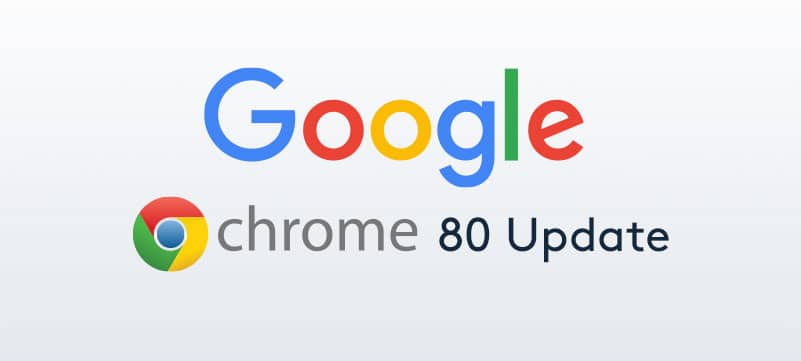Google Chrome 80: Everything You Need to Know as a Performance Marketer

Editor’s Note: This post was originally published in January 2020 and was revised on February 4, 2020, to include updated information from Google Chrome 80 release notes.
For performance marketers, figuring out how to accurately measure campaign performance amidst ongoing privacy regulations remains a challenge. The wave of privacy initiatives kicked off in 2018 with the introduction of the EU’s General Data Protection Regulation (GDPR), Apple’s Safari Intelligent Tracking Prevention (ITP) settings, and Mozilla’s Firefox Enhanced Tracking Protection (ETP). The next consumer privacy enhancement to impact performance marketers is Google Chrome 80, which was released on February 4, 2020. Though Chrome 80 has been released to users, the changes to cookie storing that marketers are expecting and that are outlined below will gradually roll out across regions starting the week of February 17, 2020.
With this influx of privacy-focused browser and regulation changes, performance marketers need — now more than ever — powerful measurement tools that not only maintain accuracy for key performance indicators and campaign attribution, but that also ensure the consumer’s right to privacy is not at risk.
What is Google Chrome 80 and what does it mean for performance marketers?
Google Chrome 80 is a new browser version intended to improve browser speeds, and more importantly, enhance consumer privacy. With the Google Chrome 80 release, there are changes to which cookies are stored.
At its core, Chrome 80 is meant to suppress cookies from unsecured domains (HTTP) as well as cookies from domains that are different than the web page domain.
In most performance marketing scenarios, the domain used by tracking links and conversion and event pixels is not the same as the web page the user is browsing. And since 70 percent of the world’s population is using Chrome, this means a significant amount of cookie-based campaign measurement could be lost.

We sat down with Vice President of Product Innovation, Garth Harris and Senior Product Manager, Brad Shumard to discuss Chrome 80 and the updates that Google is releasing on February 4, 2020.
Best practices to alleviate the impact of the Chrome 80 release
The most commonly used measurement method to determine campaign performance and attribution relies on basic third-party cookie tracking. With the Chrome 80 release, relying solely on third-party cookie tracking using a browser (HTML) conversion pixel will hamper your ability to attribute and measure campaign performance. For performance marketers, the impact will extend to all partners within the performance ecosystem including advertisers, networks, and affiliates.
Though there are many solutions to maintain accurate campaign measurement, in order to alleviate the impact of Google Chrome 80 on your performance marketing program, CAKE recommends implementing one of these three options:
- Cookieless Tracking – Also referred to as server-to-server tracking. This approach requires an advanced measurement platform that can assign a unique ID to an anonymous consumer’s ad interaction, which is then passed on to the Postback URL (also referred to as a server-side conversion pixel) and used for attribution.
- Session Tracking – This approach is a hybrid of cookie and cookieless tracking and utilizes the unique ID mentioned in option #1 and a browser (HTML) conversion pixel, instead of a Postback URL. Although potentially less accurate, this option is often easier to implement than server-to-server tracking.
- SameSite setting on CAKE – Customers can also enable CAKE’s new SameSite setting on the domain, which forces HTTPS on tracking links and pixels and flags the domain as “SameSite=None” within Chrome to allow for cookie-based tracking.
Align with your partners
While CAKE provides multiple features and recommended best practices to mitigate the impact of Google Chrome 80 on your campaign performance, there is no guarantee that advertiser and affiliate partners will take similar precautions, or that they have the supporting technology to do so. This could result in lost campaign attribution, discrepancies in attribution, and a potential loss in revenue.
Work with your partners to encourage them and ensure they are implementing similar precautions. And be sure to avoid partnerships that could result in a loss of revenue. If you have an affiliate, network, or advertiser partner that cannot support cookieless tracking today, please refer them to CAKE to learn more about our solutions.
If you have questions or concerns regarding Google Chrome 80 or how it may impact your performance marketing program, please contact your Client Success Manager.
Other content you might be interested in:
- Blog: Using Direct Linking to Measure Google and Facebook Ad Performance
- Blog: Accurate Measurement in The Age of Privacy
- Blog: How to Attribute Conversions Using CAKE’s Fingerprint Tracking